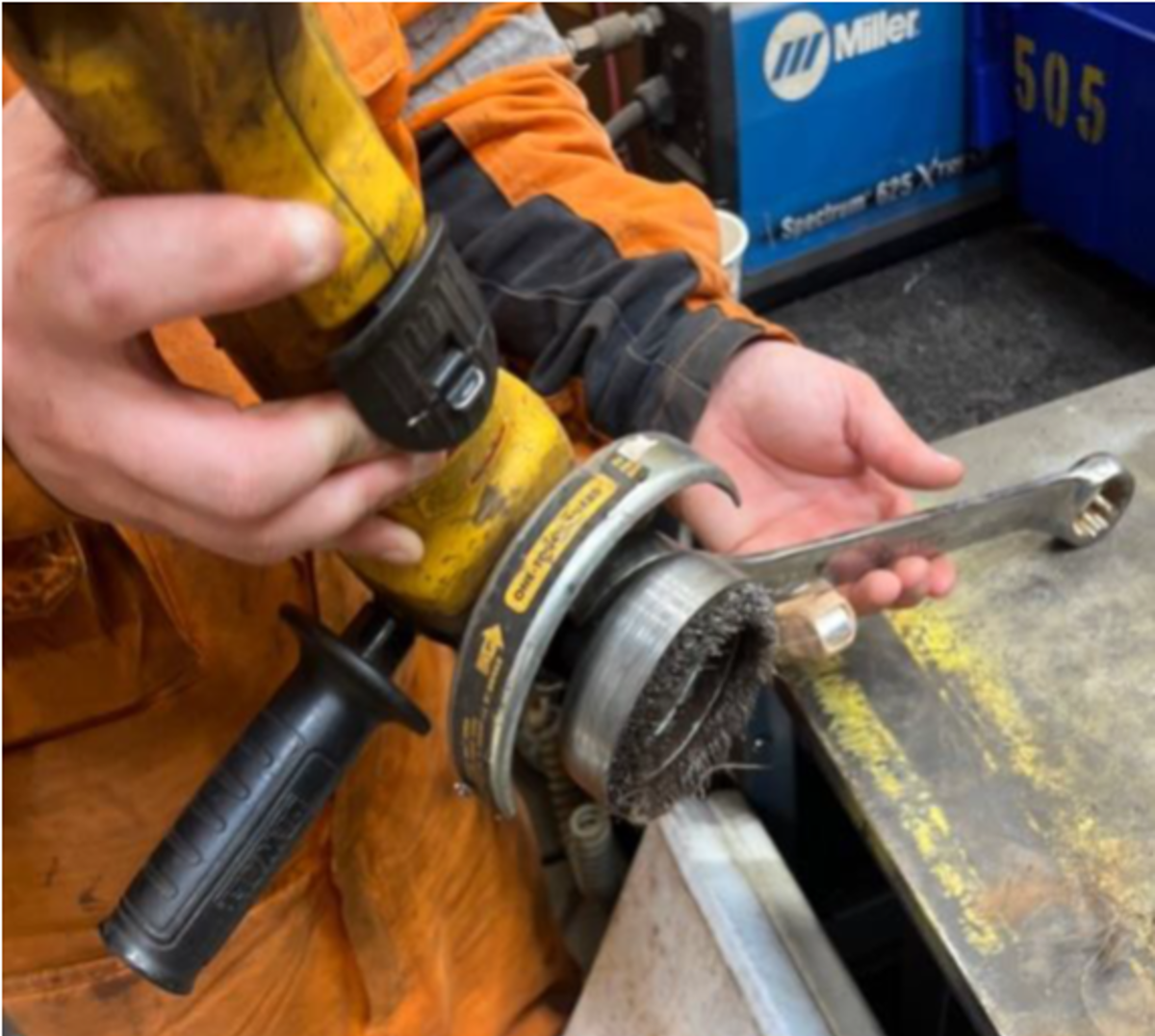Angle Grinder Finger Injury
- Safety Flash
- Published on 14 August 2024
- Generated on 24 April 2025
- IMCA SF 16/24
- 3 minute read
Jump to:
A worker injured themselves while attempting to change a wire wheel attachment fitted to a handheld angle grinder.
Hand and finger injuries
Members continue to report hand and finger injuries. In last year’s safety statistics, 42% of LTIs reported by IMCA members involved injuries caused when workers got into the Line of Fire. What do we need to do to stop workers putting their hands and fingers in dangerous places? We all want to get the job done – but that one quick pause, whilst we stop to think, could make ALL the difference. Think:
- Is there a better way to do this?
- Could I use a tool instead?
- Should there be a guard? Should I have gloves on?
- Is this still too hot to touch? Is it live or is it still spinning?
- Think carefully before putting your hands where you can’t see them.
What happened?
A worker injured themselves while attempting to change a wire wheel attachment fitted to a handheld angle grinder. In that process, the IP fractured the 5th digit (‘pinky’) of the left hand between the table and a wrench.

What went wrong?
- The method being used to change the wire wheel was incorrect – the worker did not in fact know how to change the wheel.
- The worker had not received any formal power tool / abrasive wheel training and was not fully familiar with this type of equipment. Reliance was placed in ‘on the job’ training along with the IP’s experience, rather than on formal training and competence evaluation.
- The worker was not wearing impact resistant gloves.
- There was a failure of the safe system of work:
- Grinding was not covered by the Hot Work Permit to Work.
- The worker was not assigned to the Permit to Work.
- A task risk assessment for the job was not reviewed.
- As grinding was not a planned activity, there was no supervision of the task – the appropriate level of supervision is essential.
Actions taken by our member
- Updated task risk assessment to include all hazards and control measures.
- Required the worker in this specific case to take formal Power tool/abrasive wheels training.
- A review of general training and competency evaluation requirements for the use of power tool and abrasive wheels.
- Revisited and discussed supervisors’ responsibilities.
Incidents reported to IMCA involving grinders, can be investigated using the search function on the the IMCA Technical Library webpage.
Related Safety Flashes
-
IMCA SF 09/23
4 April 2023
-
-
IMCA SF 33/21
2 December 2021
-
IMCA Safety Flashes summarise key safety matters and incidents, allowing lessons to be more easily learnt for the benefit of the entire offshore industry.
The effectiveness of the IMCA Safety Flash system depends on the industry sharing information and so avoiding repeat incidents. Incidents are classified according to IOGP's Life Saving Rules.
All information is anonymised or sanitised, as appropriate, and warnings for graphic content included where possible.
IMCA makes every effort to ensure both the accuracy and reliability of the information shared, but is not be liable for any guidance and/or recommendation and/or statement herein contained.
The information contained in this document does not fulfil or replace any individual's or Member's legal, regulatory or other duties or obligations in respect of their operations. Individuals and Members remain solely responsible for the safe, lawful and proper conduct of their operations.
Share your safety incidents with IMCA online. Sign-up to receive Safety Flashes straight to your email.